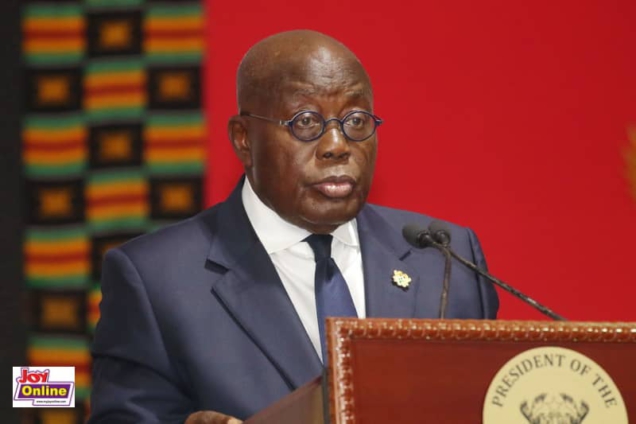The Accra High Court has rejected a request to force President Akufo-Addo to accept anti-LGBTQ+ legislation.
This follows a lawsuit filed by National Democratic Congress (NDC) MP Rockson Nelson Dafaamekpol on March 25.
In his lawsuit, the lawmaker sought several declarations and orders regarding the powers of the president under the 1992 Constitution of Ghana.
Mr Dafaamekpol sought, inter alia, a declaration that pursuant to Article 106(1) and (7) of the Constitution, the President may only assent or refuse assent to a bill within seven days, unless the bill has been approved. It was referred to the State Council.
He also wanted a declaration that the president cannot prevent Congress from introducing legislation he has passed.
Once again, the members of the National Assembly reiterate that the letter dated March 18, 2024, addressed to the National Assembly Clerk and signed by the Presidential Secretary, Nana Bediatuo Asante, is unconstitutional and therefore the President retracts the letter. I was looking for a declaration of need.
But speaking in court today, lawyers for the Attorney General represented by State Attorney General Sylvia Adeso argued that the High Court did not have jurisdiction to grant Mr Rockson Nelson Dafairmekpol’s application.
However, in her ruling, Judge Ellen Mirek said that while the court had jurisdiction, she exercised her discretion to deny the application.
He said the two lawsuits brought by private citizens Professor Amanda Odoi and Richard Della Skye had a direct impact on the mandamus application and therefore approved the relief sought by MP South Day. pointed out that it could not be done.
Anti-LGBTQ bill passed
Parliament passed the Adequate Human Sexual Rights and Family Values Bill in Ghana on Wednesday, February 28th.
Among other things, the bill would punish with prison terms anyone who participates in LGBTQ sexual activity or promotes the rights of gays, lesbians, and other nonconventional sexual and gender identities.
While some members of the public have welcomed the bill, others, including CHRAJ, have raised a number of concerns, including discrimination against people and freedoms enshrined in the Constitution.
But Ningo-Prampuram MP Sam George said nothing in the Proper Human Sexual Rights and Family Values of Ghana Bill (anti-LGBTQ Bill) violates the laws of the 1992 Constitution. .
The Ministry of Finance has already advised President Akufo-Addo not to sign the bill, expressing concern that he could face serious financial difficulties if he forces his assent to the bill.
The ministry warned that Ghana could lose more than $3 billion in funding from the World Bank for various programs and projects.
In response, President Akufo-Addo said that despite the recent passing of the ‘Decent Human Sexual Rights and Family Values Bill’, commonly known as an anti-LGBTQ+ bill, Ghana is committed to protecting human rights. We reaffirmed this determination to the international community.
The President noted diplomatic concerns and emphasized that Ghana continues to uphold its long-standing reputation of respecting human rights and adhering to the rule of law.
He clarified that the bill faces a legal challenge in the Supreme Court and that the government will not take any action on the private member’s bill until a verdict is handed down.
Stop and stop sending invoices
Subsequently, in a letter dated March 18, 2024, the Office of the President asked Parliament to refrain from sending the anti-gay bill to President Akufo-Addo for his assent.
In a letter signed by Presidential Secretary Nana Asante Bediatuo, the Office of the President explained that the decision arose from the granting of two pending applications for interim injunctions to the Supreme Court.
The letter stressed that it would be inappropriate for Parliament to send the bill to President Akufo-Addo for action until the matter is resolved in court.
Additionally, it was revealed that the Attorney General advised the President not to take any action regarding the bill until the issues raised in the lawsuit are resolved by the Supreme Court.
Disclaimer: The views, comments, opinions, contributions and statements made by readers and contributors on this platform do not necessarily represent the views or policies of Multimedia Group Limited.


